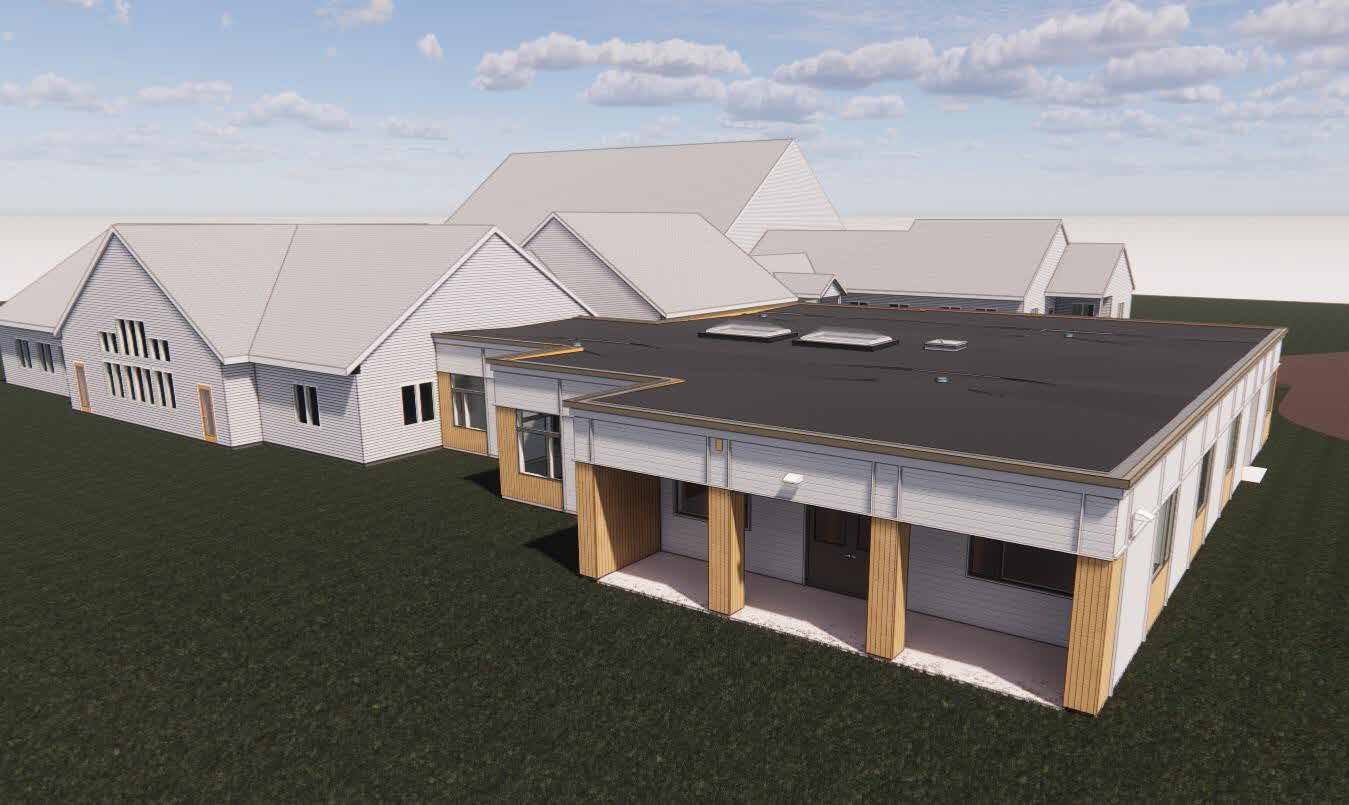Growing Lessons In the Garden, Regeneration Corps Brings Hands-On Learning to H.S.
Thetford Academy students work at Cedar Circle Farm. (Provided).
Tying together flexible pathways and the working landscape, this past year students in three area high schools engaged with social-justice issues while learning to grow food sustainably and work with their hands through a program called Regeneration Corps.
“We realized we could both educate a front-line group— that [group] being the youth that are going to inherit this deadly economy—as well as give credit towards their diplomas,” explained Regeneration Corps co-founder Henry Harris, describing how the program began.
Regeneration Corps formed in 2019 through the collaboration of several local non-profits including Building a Local Economy (BALE), The Center for Grassroots Organizing, and Change the World Kids. The project capitalizes on the evolving proficiency-based flexible pathway model of high school curriculum in Vermont by offering hands-on, community based agricultural experience with a focus on educating students on issues of racial equity and climate justice.
“This is an opportunity to get kids into the community, working with local farms, talking about racial justice, talking about inequality, working with people of color within their communities, working on their projects,” said Chris Wood of BALE, one of the organizations in collaboration. The project is one example of the types of learning enabled as schools transition towards a flexible-pathways model of education. Christa Wurm, equity and wellness coordinator at The Sharon Academy explained that the model is designed, in part, to give students more freedom with their education.
“Regeneration Corps is focused on helping to transform education on a high level,” said Wood.
Despite the weight of the pandemic, Regeneration Corps launched last fall, organizing with Randolph Union High School, Thetford Academy, and The Sharon Academy.
In Randolph, students spent time mitigating invasive species along the Ayers Brook, while having conversations about runoff, the struggles of dairy farming in Vermont, migrant farmworkers, and the need for a transition towards regenerative agriculture, explained Henry Harris, a founding member and one of several of Regeneration Corp’s educators.
Harris also described the work in Thetford. Students there went on a half-day long tour of Cedar Circle Farm, learning about specific regenerative agriculture practices like no-till agriculture. They shucked corn for Moon and Stars Arepas in Vershire, and have been talking about the connection between agriculture and the anticipated climate migration from all over the western hemisphere coming to Vermont, and how to manage the change equitably. Anika Eastman, a recent TSA grad from Hartland, had two experiences with Regeneration Corps. The projects involved deconstructing an old greenhouse at a farm in Bethel, and planting pear trees at the Randolph Community Orchard. She was the only student in both cases, leading to close and free-flowing conversations about racial and climate justice, she said.
While Eastman was skeptical of proficiency-based learning at first, she said she’s come around.
“Doing something like Regeneration Corps and having it on my transcript is really helpful, and it wasn’t a hassle or anything. It’s a way to get credit for doing stuff that could potentially be more meaningful than what you’re able to do in a regular class, so I appreciate that.” Eastman, who graduated Saturday, was accepted to Skidmore university to study biology.
Regeneration Corps is getting involved in several new community projects in the fall, as well as hoping to expand to the White River Valley High School next year, said Harris.
One such project in Sharon is a seven-acre plot of land on Route 14 where TSA students and staff plan to create a community garden that donates produce to the Sharon food shelf. Wurm said she will be working with Regeneration Corps as the garden develops.
“We want kids doing authentic work that supports the earth and just transition, and Regeneration Corps is right there to facilitate them working with the land, working with the people, and demonstrating their skills in order to…‘get credit for it’” Said Wurm.
A strong teaching focus on the intersection of land, racial justice, and climate change stood out.
“In the reparations conversation, Malcolm X said that land is the basis of all liberation,” said Harris, describing land ownership as critical “to have financial security, and food security.” Blank highlighted the importance of “how land history and the history of the Indigenous people here in this place relates to climate change and climate justice.”
Mindy Blank, another founding member of the organization, said school staff and faculty are excited to integrate Regeneration Corps into their curriculum.
Wood described how BALE’s work aligns with Regeneration Corps, and how the two efforts are strengthening each other. As the program grows, he anticipates, it will begin to reach more of the community outside of agriculture.
“As the capacity of this idea grows, there will be more opportunities for students to grow where their strongest interest is.”
According to Blank, this could look like “regional hubs that will help the program integrate into communities in a different way, where other people can take leadership roles,” she said.
To view published article, click here.








